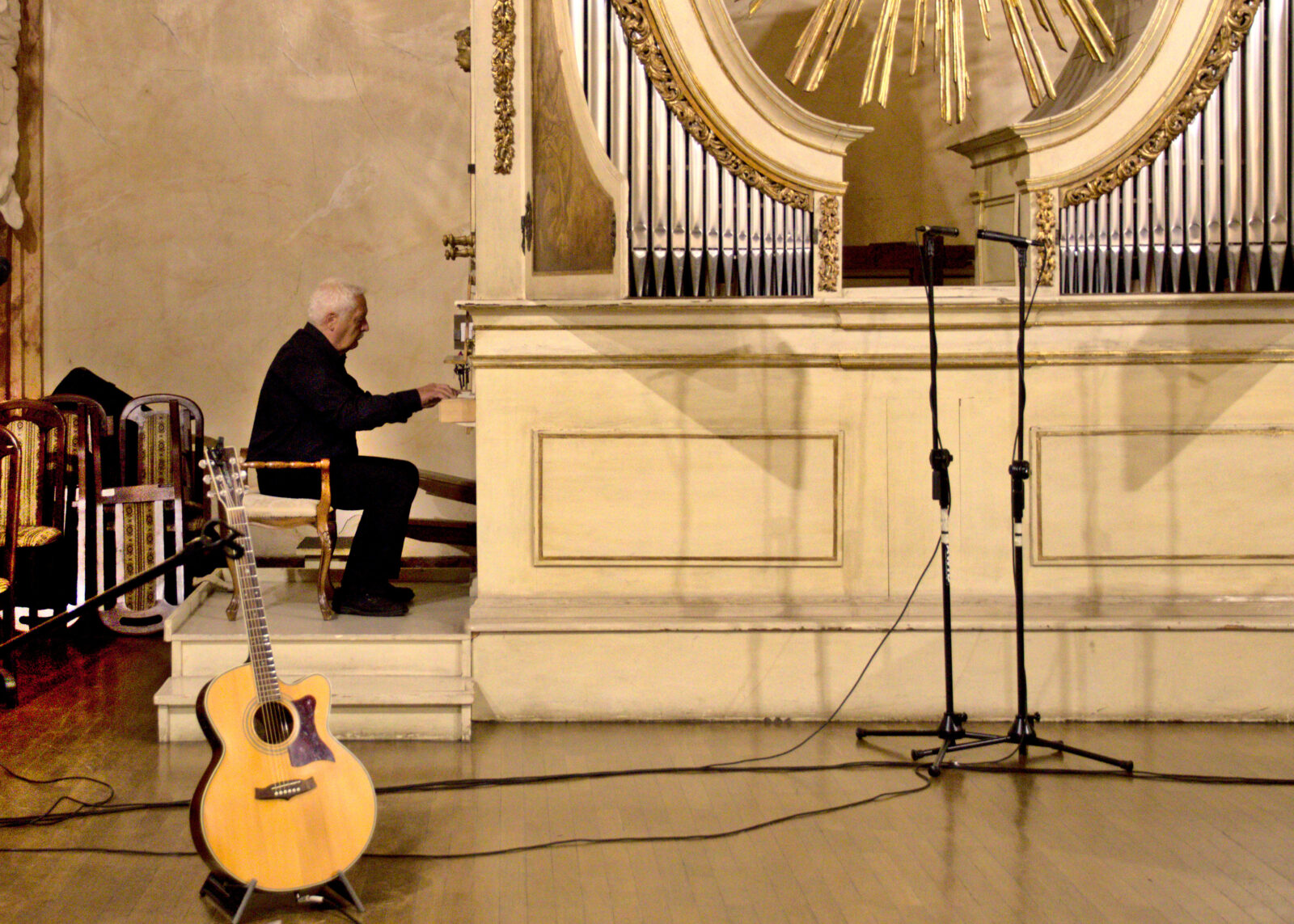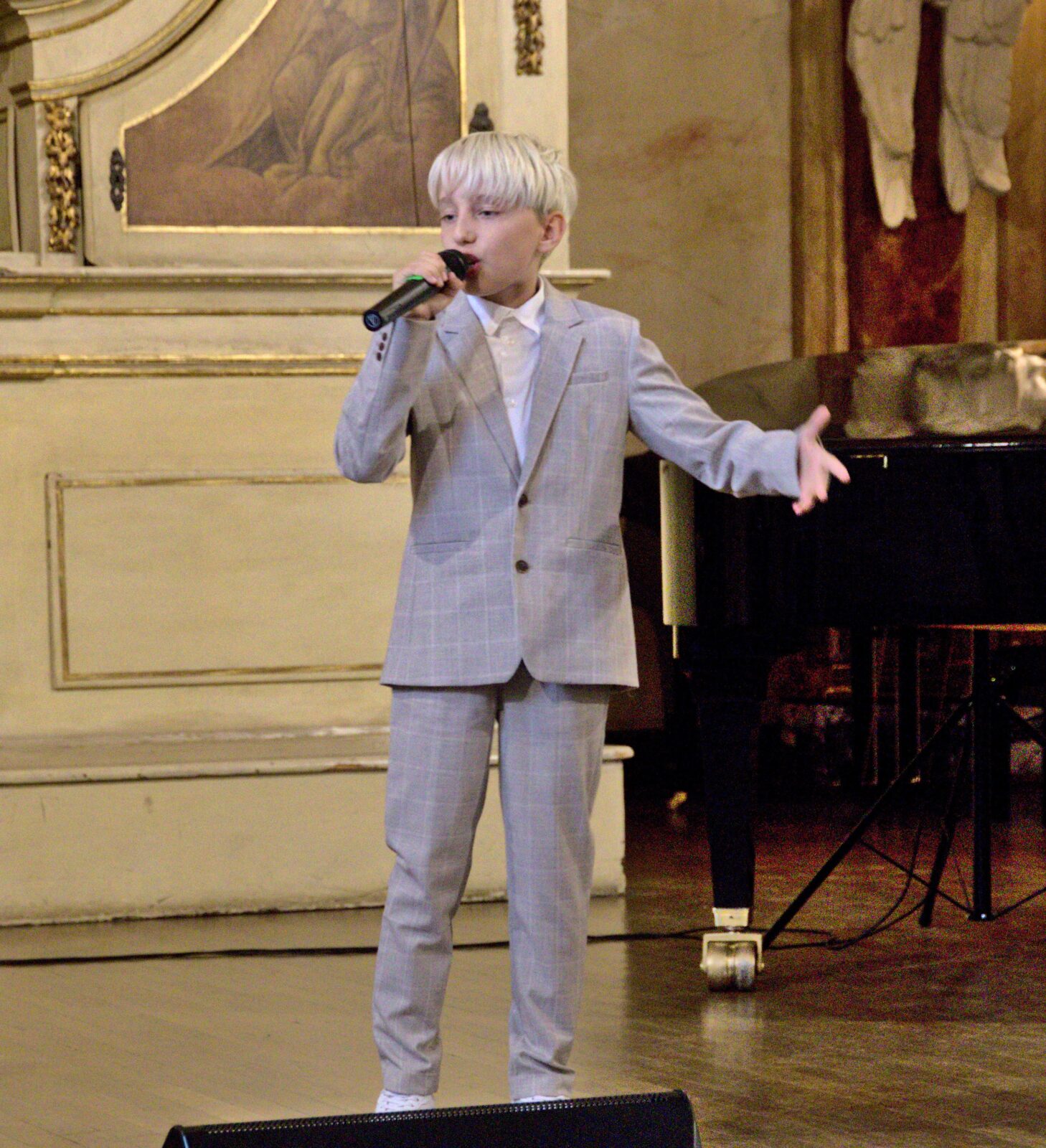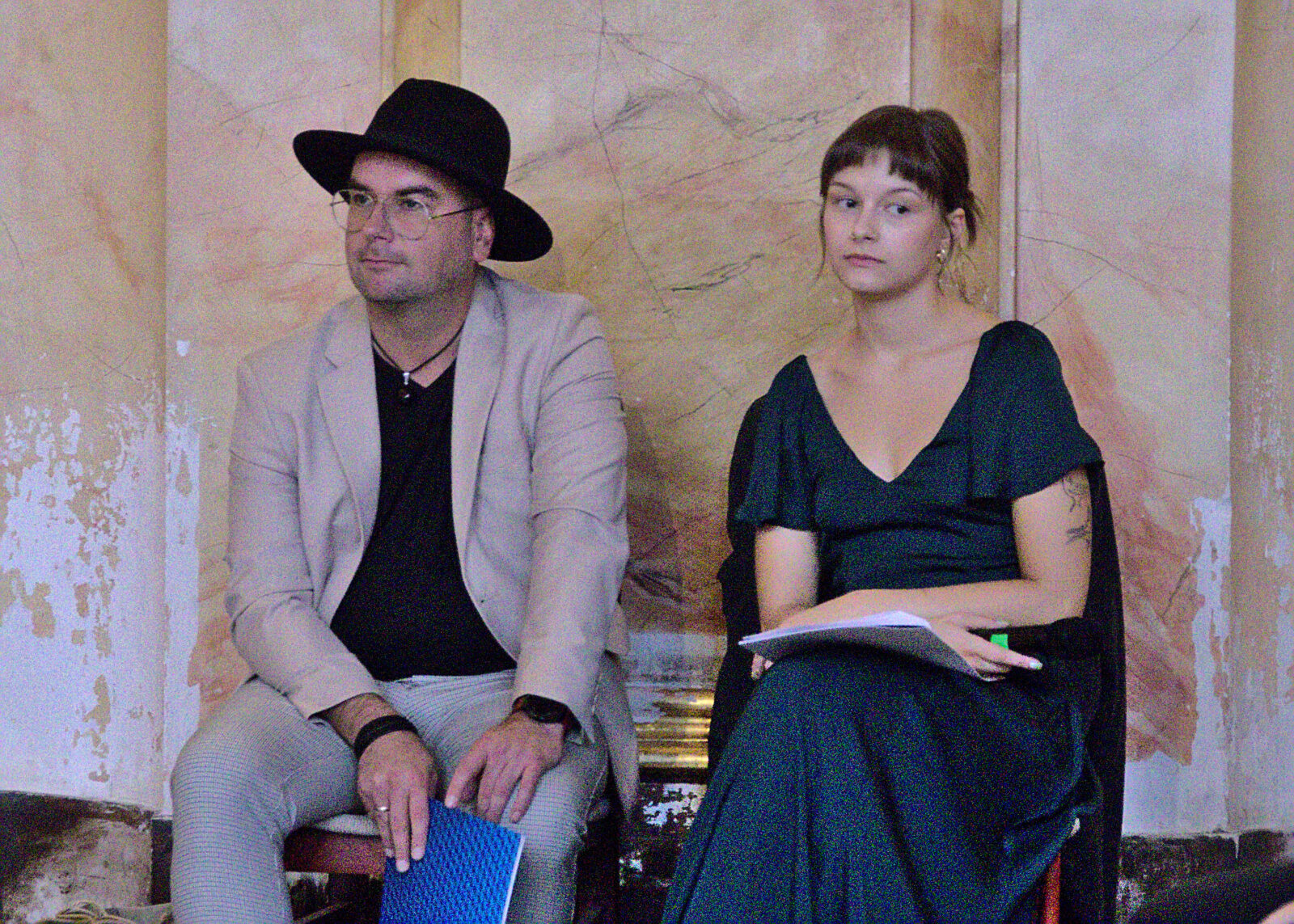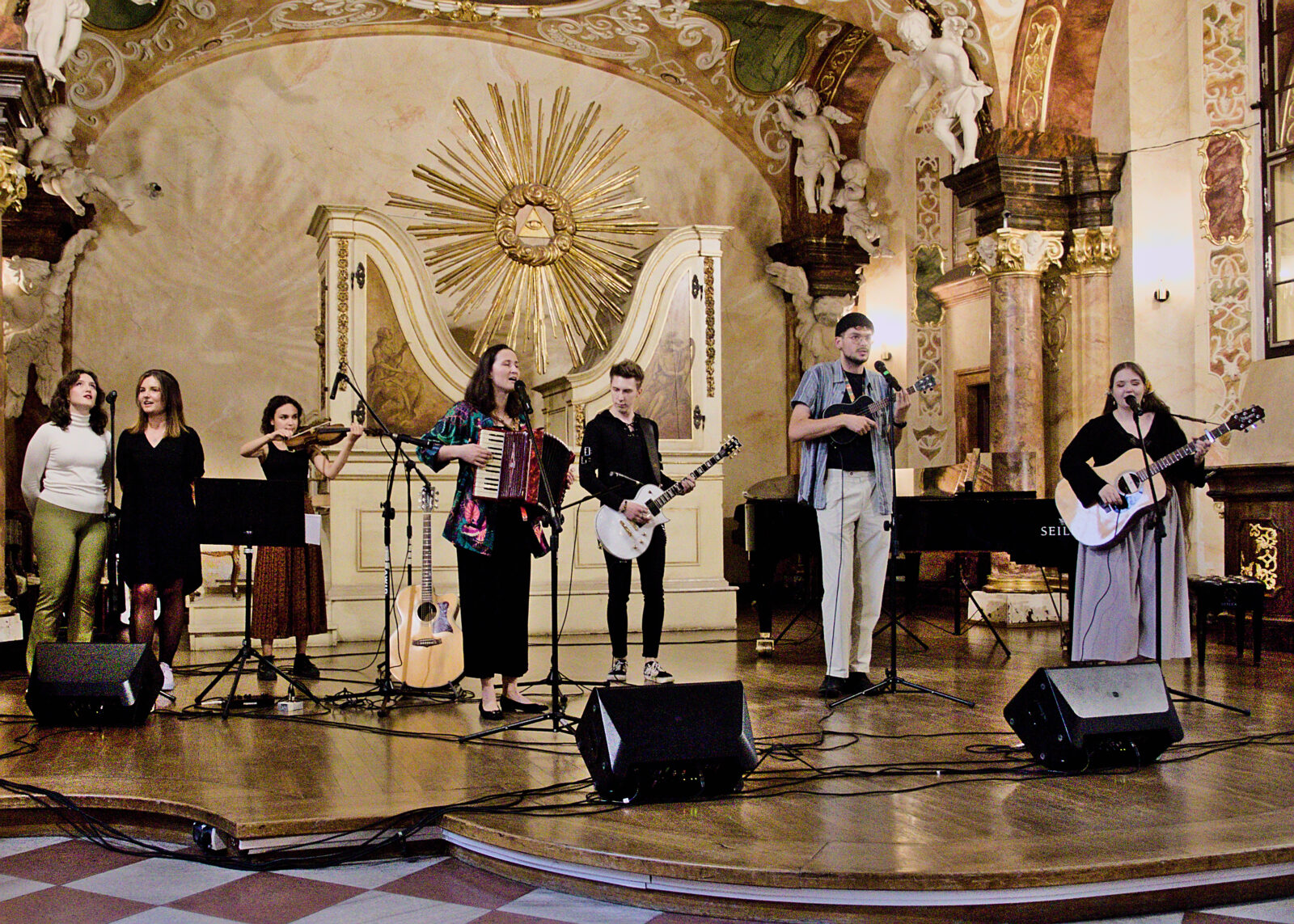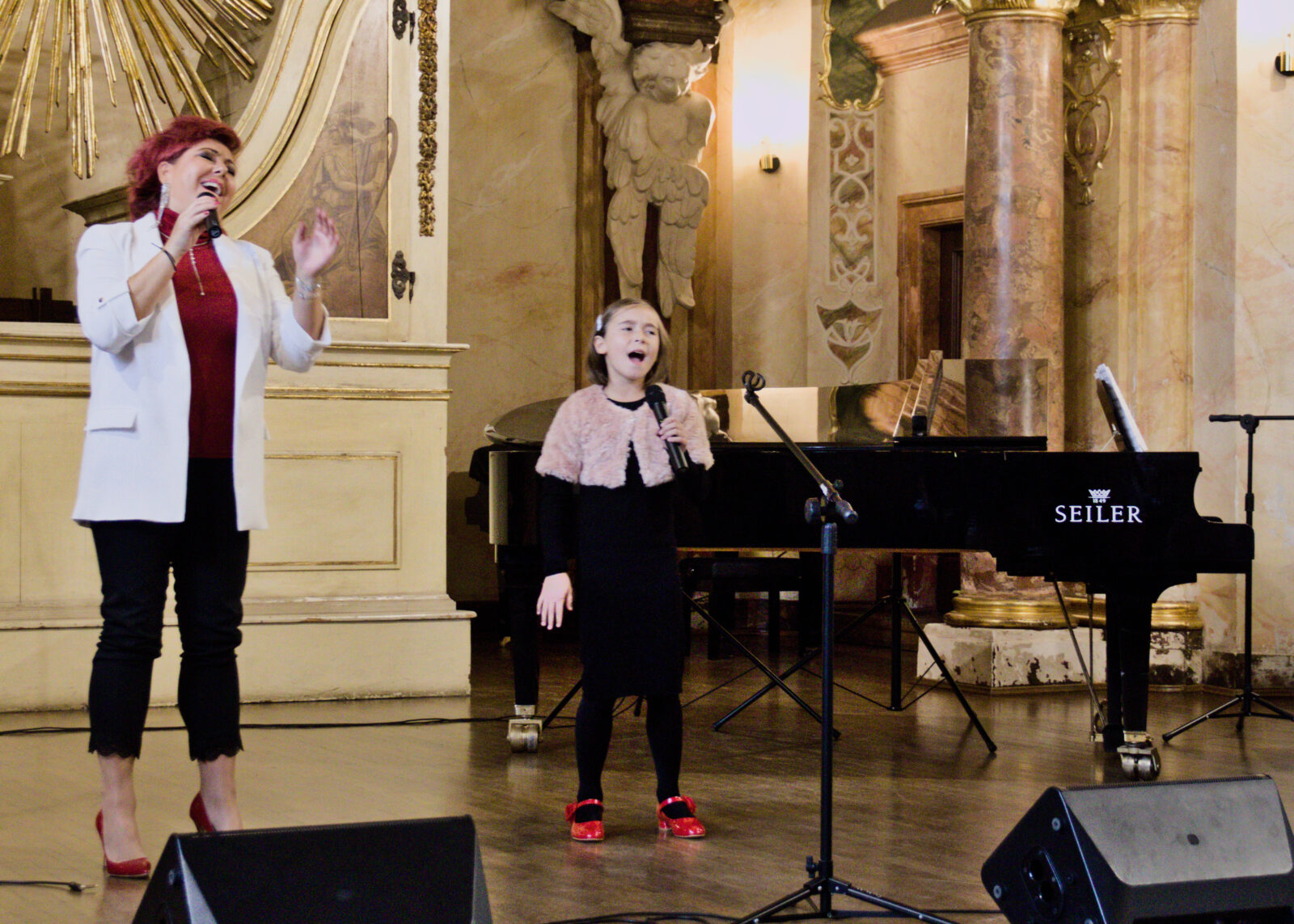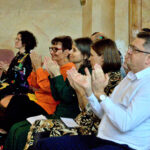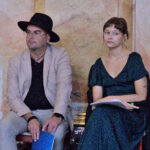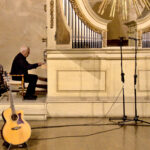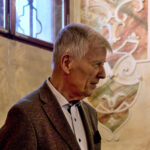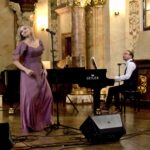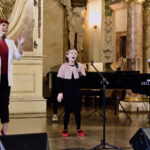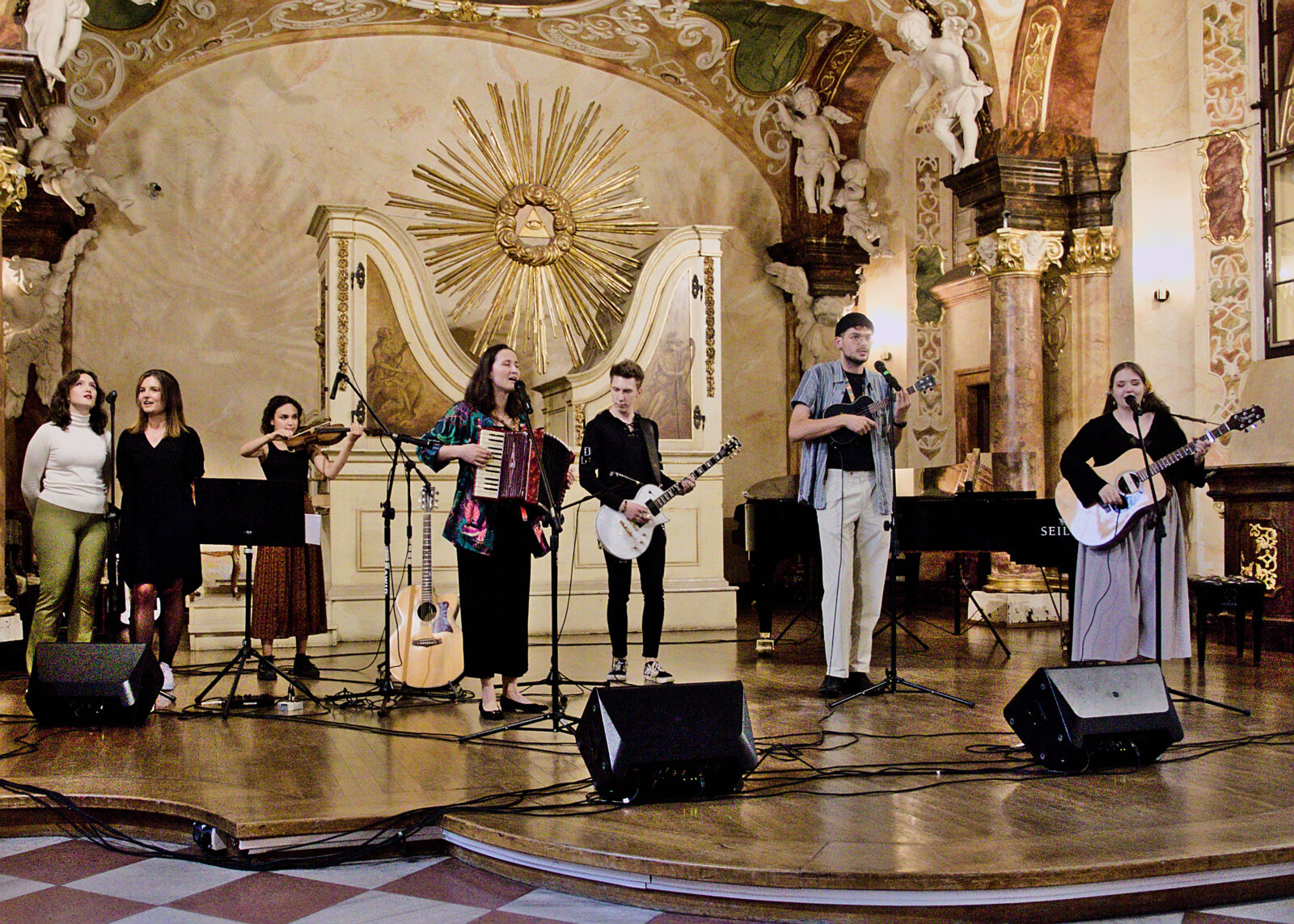
Concert “Melodies of Three Generations” – report
A large audience gathered in Oratorium Marianum on the sunny Friday afternoon of the 6th of October during the fourth edition of the Melodies of Three Generations concert to warmly applaud the artists performing on stage. The organisers provided the audience with an excellent intergenerational cast; moreover, there was a multiplicity of surprises, thrills and emotions.
The first surprise took the form of a performance by Natalia Ciołka, a graduate of Russian Studies at the Institute of Slavic Studies, who both as a student and graduate has repeatedly performed on stage solo, in a duet and with the Lemko musical ensemble ‘Prypadok’, winning numerous prizes and awards during Slavic Song Contests.
She was about to make an out-of-competition appearance at this year’s SSC in May, but unfortunately, it did not happen. Less than a month before the contest she suffered a tragic car accident. Thanks to the generosity of her friends and the help of all the people who know her from her charity work, and also as the result of her extremely strong will and the arduous five-month rehabilitation, she was able to stand on her own feet (using crutches, but still) for the first time on the very day of the concert. During her stay in hospital, this deeply believing girl, who remains active in the Orthodox Church, wrote a piece dedicated to the second victim of the accident and to all of us who have supported and continue supporting her during the painful recovery period. Natalia is considered a forerunner of Orthodox rap. A song written and sung by her titled Ocaleni [Survivors] had almost 1,500 views in four days. It was hard not to be moved listening to the words she wrote and looking into her laughing eyes.
In accordance with the programme, the concert was opened by the youngest participants – 12-year-old Filip Płażalski from Drawsko Pomorskie and 11-year-old Julia Polańska in a duet with her mother, long-time juror and sponsor of the Slavic Song Contest, singer Anna Majkut-Polańska.
Filip, the winner of various music competitions and a participant in television programmes such as ‘Mam Talent’ [the Polish version of the Got Talent format] and ‘The Voice Kids’, was hailed as the hope for the future of Polish opera. At the last minute, he decided to present Gladiator from Andrea Bocelli’s repertoire, and Euphoria from Loreen’s repertoire to the gathered audience. These two seemingly separate musical genres were combined by him into an operatically charming and entertaining whole. The talented boy’s performance was received by the audience with a standing ovation. Eleven-year-old Julia Polańska performed on the stage of Oratorium Marianum for the first time together with her mother, Anna Majkut-Polańska, presenting a well-known (to the younger audience) piece from the film ‘Mulan’ titled Loyal Brave True (which they sang in Polish version). Anna Majkut-Polańska runs her own music studio where she passes on her passion and love of singing to the youngest children, including her own daughter. Since the first edition, she has been associated with the Slavic Song Contest – as a star, juror and sponsor. Both of them, being so much alike, presented the song tastefully to the audience.
The organisers invited three female students – the winners of the 20th jubilee Slavic Song Contest – to take part in the concert. These ladies have been performing not only on Wrocław stages for several years now, but they participate in numerous musical projects and exhibit a very high artistic level at such a young age. Adrianna Kwiatkowska, honoured at the 20th edition of the SSC with the First Prize of the Dean of Faculty of Letters, performed Mambo Italiano originally sung by Rosemary Clooney and E penso a te from Lucio Battisti’s repertoire. Adrianna and her accompanist dr Julianna Redlich created a charming musical duet.
Sofiia Poplavska, honoured by the Institute of Slavic Studies with the Directorate Award, is a well-known person to supporters of Slavic songs. She had repeatedly sung various beautiful, lyrical Ukrainian songs in Oratorium Marianum in the past. This time, she presented a masterful performance of two songs in English – My Same originally sung by Adele and At Last from the repertoire of Etta James in a new arrangement. Together with her accompanist Stanisław Marinczenko they delighted the audience gathered in the Music Hall.
The third laureate of the 20th SSC, the winner of the International Office prize, the student of Czech Studies, namely Małgorzata Pelak, a girl of many talents who pursues her passions in, among others, ‘Nomen Omen’ Artistic and Theatre Ensemble of the University of Wrocław, captivated the audience with her incredible lyricism, delicacy and subtlety. She performed covers of Renata Przemyk’s pieces titled Ten Taniec [This Dance] and Tango Tendresse originally performed by Justyna Szafran. Her resonant, lovely voice enchanted the audience and put them into a poetic trance.
Regular supporters of the Slavic Song Contest remember dr Monika Jasińska-Okulewicz very well; this time, together with her students, she spread optimism and positive energy all over the stage by singing Russian hits such as Nasz sąsiad [Our neighbour] from Edyta Piecha’s repertoire or Marsz wesołych dzieci [The march of merry children] from the film Świat się śmieje [The world is laughing].
This year, the tradition established by dr Jasińska-Okulewicz was continued by Germanists. For the first and probably not the last time, the ensemble of the Student Scientific Association of Germanists + Friends together with the group’s tutor, dr Julianna Redlich, presented themselves gracefully, performing Remanenty Serca [Heart Inventories] by the duo Patrick the Pan and Daria Zawiałow and Skakać chcę [I want to jump] by Weronika Krzysztofczyk. The group, singing and playing various instruments (ukulele, electric guitar, accordion and violin), delighted the audience with their energy, joy and genuine enthusiasm. The heart and driving force in this ensemble is undoubtedly the assistant professor of the Institute of German Studies, who has already been giving concerts, singing in clubs and performing recitals for many years.
Julianna Redlich prefers atmospheric music; she writes and translates the lyrics of the songs she performs herself. On the stage of the Music Hall, she presented moving, nostalgic songs by the German singer Farjus – Bäume im Sand in her own translation into Polish and Herbert Grönemeyer’s Der Weg also in her own translation into Polish. Her exceptional talent and amazing performance were appreciated by the audience.
It would be difficult to imagine this concert without our long-standing friends, who have a loyal audience here in Wrocław. Multi-instrumentalist Stanisław Marinczenko and Igor Jelinek were brought together by the Institute of Slavic Studies, their love for music and their joint musical projects. Both men give concerts and record albums in Poland as well as in the Czech Republic. They have repeatedly accompanied participants in the various editions of the Slavic Song Contest. Years ago, in appreciation of their merits, the organisers arranged a special concert dedicated to them two – Piękni czterdziestoletni [Beatutiful Fourty-year-olds]. This time, the men sang a Russian-language piece by the band Чайф titled 17 лет, which was enthusiastically received by the audience, and a beautiful piece by Czech singer, guitarist and composer Michal Hrůza – Kometa [The Comet].
Lyubov Moc, better known to audiences of Wrocław under the name Moroz, is a graduate of Ukrainian Studies at the Institute of Slavic Studies. She sang in the university choir Gaudium, and has repeatedly performed as a student and graduate in competitions and concerts organised by the Institute of Slavic Studies. She collaborates with “Mizia & Mizia Blues Band”. On the stages of Aula Leopoldina and Oratorium Marianum, she has most often presented beautiful, lyrical Ukrainian songs. At the request of the organisers, this time she also sang Czeremszyna, which is also well-known to Polish people, especially to older audiences, and an equally popular piece, a waltz from the repertoire of an American singer of Ukrainian origin, Kvitka Cisyk Де ти тепер / Місто спить/. Luba performed both songs masterfully, presenting herself gracefully, both vocally and regarding her acting.
Czech Studies and Russian Studies graduate Kamila Ogrodnik – the winner of several editions of the SSC and at the same time a person awarded the 1st Prize of the Dean of the Faculty of Letters 10 years ago for her wonderful performance of Ray Charles’ Georgia – had always dreamed of singing a piece from the repertoire of Anna German titled Tańczące Eurydyki [Dancing Eurydices]. Years later, as a graduate, she fulfilled her dream, and the audience gathered in Oratorium Marianum thunderously applauded her lovely interpretation of this piece.
The performance of the Ambassador of the Embassy of the Republic of North Macedonia, Ilija Psaltirova, was welcomed by the audience of the Slavic Song Contest with great applause in May. Therefore, the organisers invited the Ambassador to participate in the autumn concert of Melodies of Three Generations. In his performance, we heard songs in Macedonian – Bidi mi i ostani and Sonce za tri svetovi. Ilija Psaltirov operates a beautiful timbre of voice, he plays guitar and piano; moreover, in his youth, before working in diplomacy, he wrote music and lyrics for well-known Macedonian artists. Putting it briefly – diplomacy combined with a passion for music creates simple perfection.
A great surprise for the audience was the participation of Poland’s favourite linguist, the former director of the Institute of Polish Studies at the University of Wrocław, professor Jan Miodek, who less than a week before the concert had been awarded the Wrocław Science Prize. He received the award on the 1st of October during the inauguration of the academic year at the University of Wrocław. Professor Miodek sang one of his favourite songs, titled Starzyk [The Cowbird], from the repertoire of “Śląsk” Song and Dance Ensemble, and was accompanied, not for the first time, by Rector Senior prof. Adam Jezierski. This time, the rector played a triple role – of announcer, accompanist and performer. The audience was clearly surprised to hear prof. Jezierski announce that he would be singing a very topical, especially at the present time, piece by Cyprian Kamil Norwid titled Larwa [Larva]. The music to this poem was composed by Wanda Warska. The performance by our two distinguished guests, as one can easily assume, was met with incredible applause. The youngest generation had certainly no idea about professor Miodek’s singing. The singing of the senior rector, professor Jezierski, was probably a novelty for everyone.
This wonderful concert was hosted by the third-year student of Russian Studies Agata Bromboszcz and the Ukrainian Studies graduate Łukasz Gawlik.
Translated by Patrycja Orman (student of English Studies at the University of Wrocław) as part of the translation practice.


